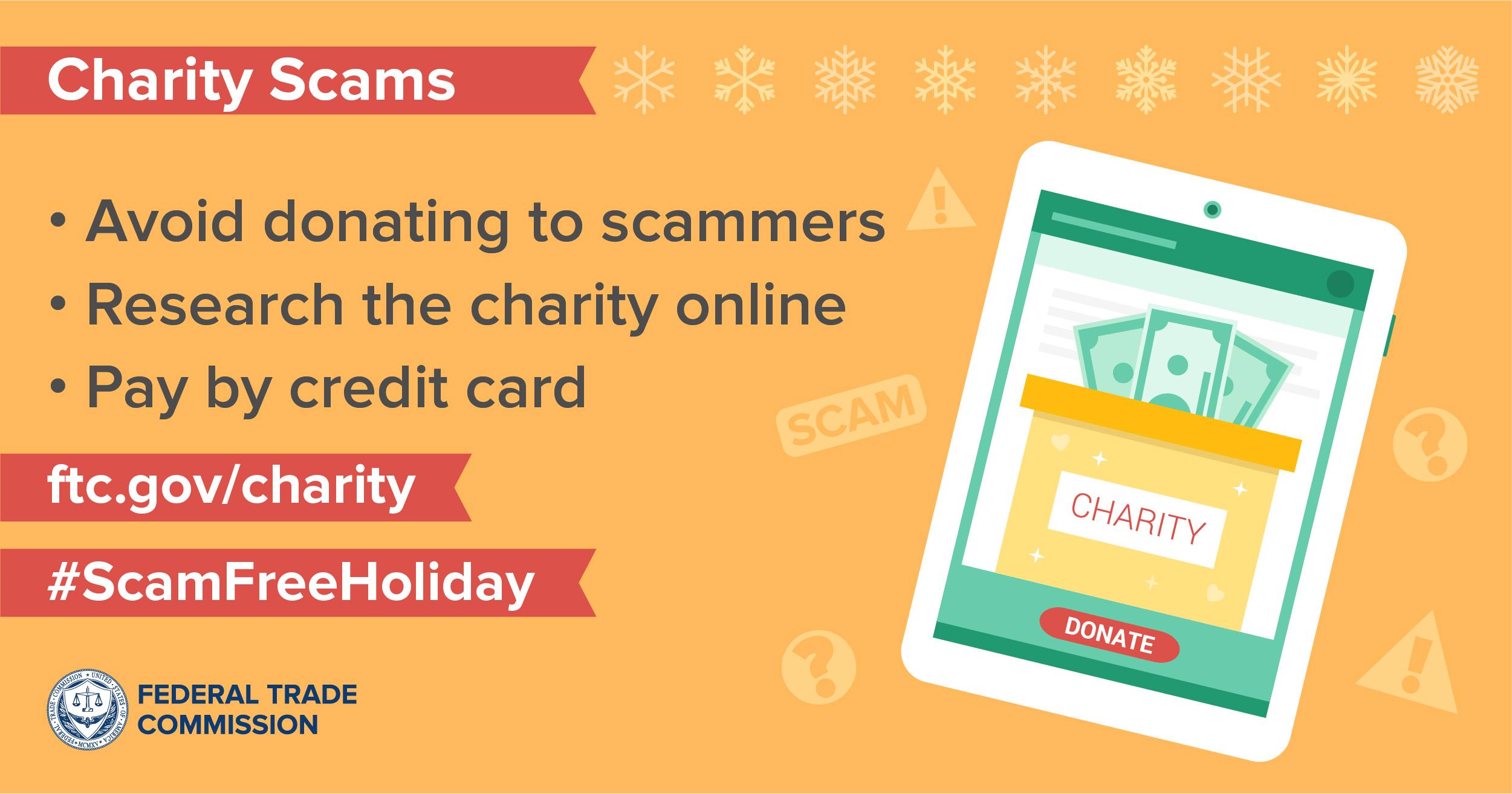 The season of giving is here. If you celebrate Christmas, you might be about to fill some stockings. But, for many, holiday giving includes supporting charitable causes. Charities in need of support will be making year-end appeals by phone, mail, email, and social media. Scammers know that, too, and every year try to trick people into giving to them, not the real deal. So here are some steps to take to make sure the charity is real and your money will support the programs you care about.
The season of giving is here. If you celebrate Christmas, you might be about to fill some stockings. But, for many, holiday giving includes supporting charitable causes. Charities in need of support will be making year-end appeals by phone, mail, email, and social media. Scammers know that, too, and every year try to trick people into giving to them, not the real deal. So here are some steps to take to make sure the charity is real and your money will support the programs you care about.
- Check out the charity before you donate. Search online with the name of the charity plus words like “complaint,” “review,” or “scam.” Ask how much of your donation will go to the work of the charity (versus, say, fundraising). Learn more by seeing what organizations like the BBB Wise Giving Alliance, Charity Navigator, CharityWatch and Candid say about how a charity does its business and spends its money.
- Double-check the name. Scammers sometimes use names that sound like real charities that you know and trust.
- Don’t be rushed. Scammers love to pressure you to make fast decisions and pay them. But take it slow. Real charities will be happy to get your donation when you’re ready.
- Avoid donations by cash, gift card, cryptocurrency, or money transfer service — if they demand to be paid that way. That’s how scammers ask to be paid. Your safer bet is to pay by credit card.
- Report charity scams at ReportFraud.ftc.gov. Your report can help people in your community protect themselves from charity scams and other types of fraud. The FTC uses reports like yours to investigate and bring law enforcement cases.
Check out ftc.gov/charity for more, including on giving through online platforms. And take a moment to check out, and share, this charity fraud video. Happy giving!
